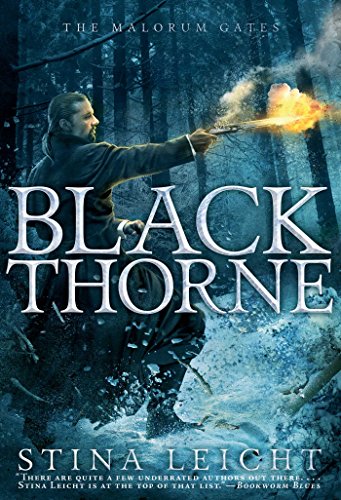The Intersection: Blackthorne and the Importance of Secondary Characters

There are many tools one can use for worldbuilding. A lot of them aren’t obvious to the reader—and in fact, I’d venture to say that the most effective techniques are those the reader doesn’t notice. This is how real life works. For example: events and cultural distinctions clearly affecting the world and those living in it but no one openly discusses are a big factor in everyday life.[1] Another of these hidden opportunities for worldbuilding involves secondary characters. One of the things I aspire to do is to populate my stories with any number of interesting characters capable of taking over the narrative. (Not that I let them.) Not only does it give the main characters people to interact with and thus further the plot, it’s realistic. Each of us thinks of ourselves as the main character of our story. Point of view characters in a novel are no different. However, we aren’t the only main character. Every “secondary character” we meet—doctors, neighbors, people on the street—is the main character of their own story in which we are the secondary character. That’s reality. In addition, well-developed secondary characters will sometimes alter the main character’s perspective of the world. This, too, is how the real world works. How many times have you encountered someone whose perspective on a situation altered your own? If you’re like me, quite a few. None of us operates in a vacuum. Characters in a narrative shouldn’t either.
Book Review: Blackthorne by Stina Leicht

Eledore has fallen! In the wake of the near-genocidal attack on the already plague-ridden kingdom, the remnants and survivors of the attack by the Acrasian Empire have several pressing problems. First, the Acrasians, now that they have smashed the Kingdom, consider the flinders to be easy pickings. Kainen hunted for sport, territory conquered, a proud kingdom ruined. Worse, the remaining Kainen polities, like the Waterborne Nations, and Ytlain, have to deal with this new political reality, and Eledore’s fallen status means that its people must often go cap in hand to their brethren, and suffer and bargain for what they once could ask for freely. Even more of a problem is the problem that Eledore has stood athwart for centuries and no longer can: The otherdimensional, eldritch problem of the malorum. Now that the gates are opening and malorum are coming through, the survivors of Eledore are under literal siege from this threat. Not that the Acrasians are as well off as they might be. Yes, the great victory against the Eledorean menace has occurred. But in the wake of that victory, the local and resident nonhuman population, overt and covert, have been restive. Some have even been seeking escape from the Regnum, to get beyond the borders of a state slowly and inexorably tightening into Caesarism. Besides the high level political problems, seen only at a distance and remove, the street-level problems of life in the Regnum are multiplying. The malorum are now a looming threat on the streets of Novus Salernum itself.

